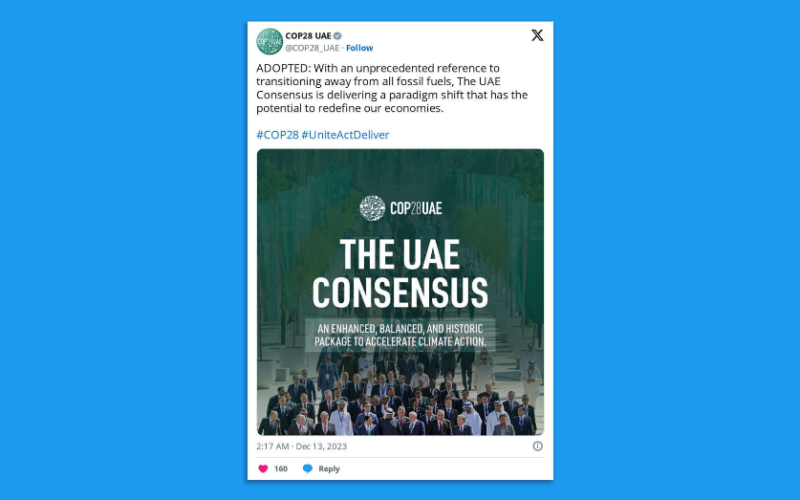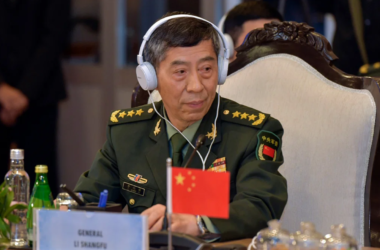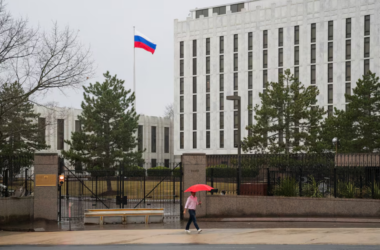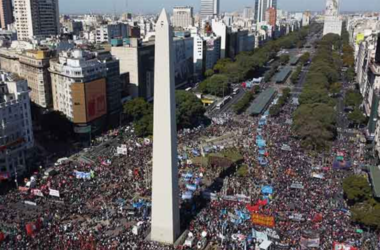In a groundbreaking development at COP28, President Sultan al-Jaber declared on Wednesday that the Global Stocktake has received unanimous approval from 198 nations, marking a historic moment in the pursuit of climate goals. The accord, deemed “historic” by al-Jaber, aims to keep the target of limiting global temperature rise to 1.5 degrees Celsius within reach. The United Nations hailed it as “the beginning of an end on fossil fuels,” signaling a monumental shift in global climate policy.
The two-week-long negotiations held behind closed doors in Dubai culminated in a landmark achievement as 198 nations unanimously approved the Global Stocktake. President Sultan al-Jaber, addressing the success, received a standing ovation as he highlighted the historic nature of the agreement. The deal, achieved without objections, represents an unprecedented step toward the collective goal of reducing the reliance on fossil fuels globally.
President al-Jaber emphasized the significance of the deal, highlighting that it includes language on fossil fuels for the first time ever. He lauded the collective effort of nations, acknowledging their flexibility and commitment to placing common interests ahead of self-interests. While expressing pride in the historic achievement, he issued a note of caution, emphasizing that the agreement’s effectiveness lies in its implementation.
Former Prime Minister Mahathir Mohamad echoed concerns raised by emphasizing that the distribution of power between parties is safer than absolute power. President al-Jaber concurred with these views, emphasizing the need to turn the agreement into tangible actions.
Acknowledging doubters, he stated, “Many said this could not be done,” emphasizing the collaborative nature of COP28, which brought together private and public sectors, civil society, NGOs, faith leaders, youth, and indigenous peoples. The commitment resulted in the establishment of the loss and damage fund and the mobilization of over $83 billion in new financial commitments.
The European Union heralded the COP28 deal as a potential turning point, expressing optimism about reaching “the beginning of the end of fossil fuels” for the first time in 30 years. EU climate chief Wopke Hoekstra emphasized the victory for multilateralism and climate diplomacy.
United Nations Secretary-General Antonio Guterres echoed the sentiment, asserting that the fossil fuels era “must end” with justice and equity. The UN Secretary-General acknowledged the significance of the transition away from hydrocarbons, emphasizing the need for a just and equitable conclusion to the fossil fuels era.
The COP28 agreement garnered praise for its commitment to tripling renewable energy capacity, doubling energy efficiency, phasing down unabated coal, and transitioning away from fossil fuels in energy systems. However, some representatives, including a Qatari official, expressed reservations regarding specific paragraphs in the agreement. The official stressed the importance of adhering to the principles of common but differentiated responsibilities and equity.
COP28’s historic climate deal marks a paradigm shift in global efforts to address climate change. The unanimous approval of the Global Stocktake, emphasizing a transition away from fossil fuels, reflects a collective commitment to combatting the climate crisis. As the international community celebrates this landmark achievement, the focus now shifts to implementing tangible actions outlined in the agreement and fostering continued collaboration for a sustainable and equitable future.








